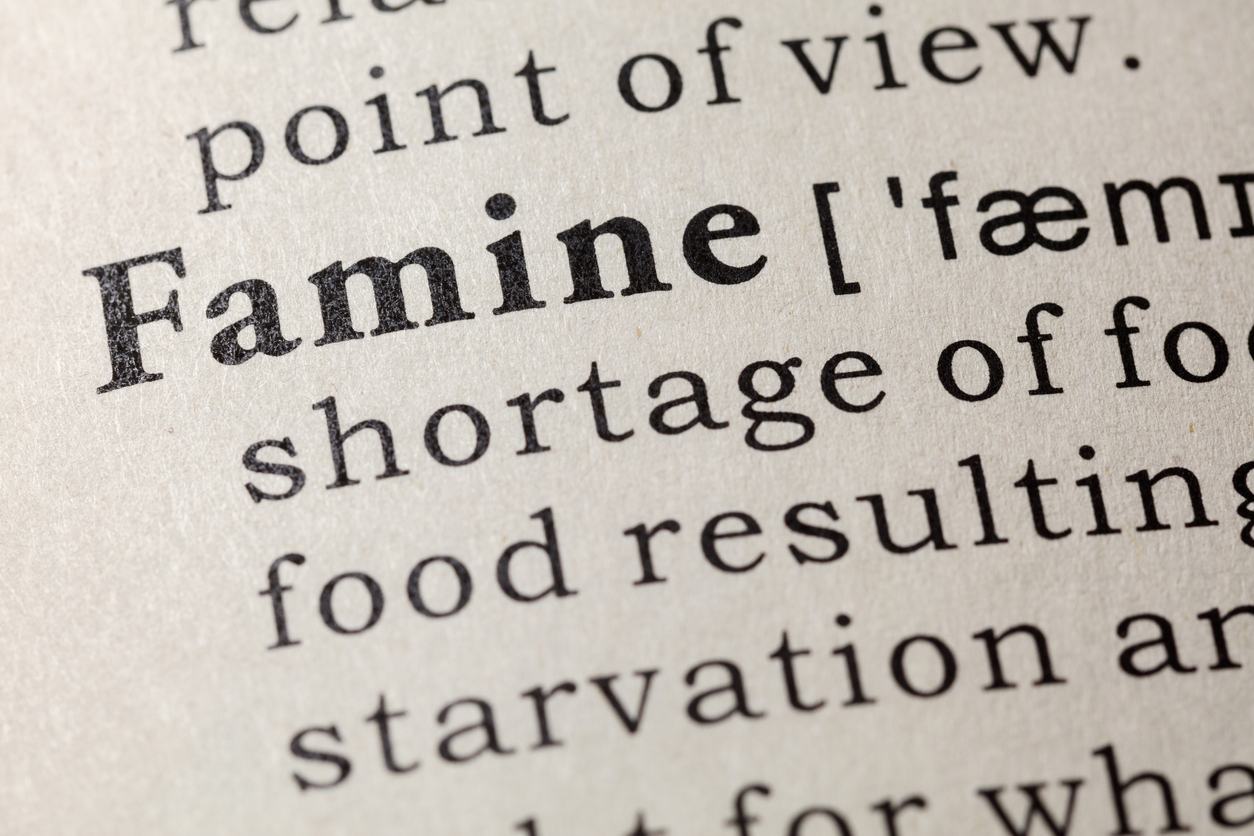UN-backed group changed the definition of ‘famine’ to declare one in Gaza

A group established by the United Nations tasked with assessing hunger around the world changed the definition of “famine” in Gaza, a report has found.
The Integrated Food Security Phase Classification (IPC) was created in 2004 by the UN’s Food and Agriculture Organization’s Food Security Analysis Unit. Typically, the IPC assesses whether there is a famine by measuring the height and weight of children in an affected area. If 30% of children are found to be suffering from acute malnutrition, the IPC considers it a famine.
But in its July 29th report on Gaza, the IPC quietly changed its standards, the Washington Free Beacon reported. Instead of using detailed height and weight measurements, the IPC measured children’s mid-upper arm circumference (MUAC), a metric considered far less precise. In addition, the IPC halved its acute malnutrition metric from 30% to 15%.
The group was then able to declare a famine after determining that in Gaza City, 16.5% of children were malnourished based on MUAC. In Deir al-Balah and Khan Younis, the two other cities studied by the IPC, the number was just 8%.
The IPC’s conclusion was cited by legacy media outlets to accuse Israel of “starving” Gazans.
“If you keep pulling the thread here, you start to understand this is one of the greatest frauds ever perpetrated on the world,” former National Security Council official Richard Goldberg said. “There is no famine in Gaza—the data thresholds don’t support that claim—and yet we have the United Nations changing the rules to fit the desired political outcome.”
This isn’t the only trick used by the UN to perpetuate a mass starvation narrative. The United Nations is also withholding tons of food from Gazans as it continues to accuse Israel of starving civilians.
The Israel Defense Forces send an average of 100 food trucks into Gaza each day through the Kerem Shalom crossing. Once on the Gaza side, it falls to UN officials to distribute the aid. This month, however, footage of the area revealed 950 trucks containing roughly 2,500 tons of food sitting idly on the Gaza side of the crossing, not being distributed.
The UN, a longtime ally of Hamas, has been frustrating efforts to deliver aid to Gaza while continuing to accuse the Israeli government of causing a famine. The UN has also been pressuring agencies not to work with the Gaza Humanitarian Foundation (GHF), an aid distribution organization created by the Trump administration to ensure the delivery of food to Gaza. The GHF has so far delivered well over 100 million meals to Gazans, with daily loads of roughly 41 trucks carrying 2,273,040 meals.
GHF begs UN to let it deliver food
The GHF has been imploring the UN to allow it to deliver the aid being withheld.
“We’ve been sounding the alarm for weeks on the need for more aid in Gaza while we’ve seen aid by the UN and other organizations being piled near the borders but not being delivered,” said GHF Interim Director John Acree.
GHF Executive Chairman Johnnie Moore also urged UN Under-Secretary-General Tom Fletcher to allow GHF to distribute the aid piling up. “Our door remains open,” Moore wrote to Fletcher. “We are prepared to support the safe and accountable delivery of UN aid to Gazans who desperately need it. But time is short. People are starving, and food is sitting idle out of their reach. We cannot let politics stand in the way.”
GHF spokesman Chapin Fay, standing in Gaza at the Kerem Shalom crossing, said he saw “tons of aid from UN organizations sitting on the ground undelivered… desperately needed flour rotting on the side of the road; rice from Jordan baking for over 90 days; expired medical supplies.”
UN: Israel must provide security—but we will not allow it
The UN has also demanded that Israel protect the aid while simultaneously forbidding Israeli security forces from doing so. At a recent press briefing, UN Secretary-General António Guterres's spokesman, Stéphane Dujarric, was unable to clarify the organization’s position.
“On the one hand, you’re saying Israel is responsible for the security of humanitarian [aid] delivery in Gaza; on the other hand, the UN will not accept IDF-provided security to these convoys. So I’m not sure how you reconcile that,” a reporter asked Dujarric.
Dujarric dodged the question with a puzzling response.
“I think we reconcile it by trying to find a way to keep our people and the community as safe as possible,” he said before hurriedly moving on.
The Israeli Foreign Ministry recently released a video of Hamas terrorists gorging themselves on food.


.jpg)

